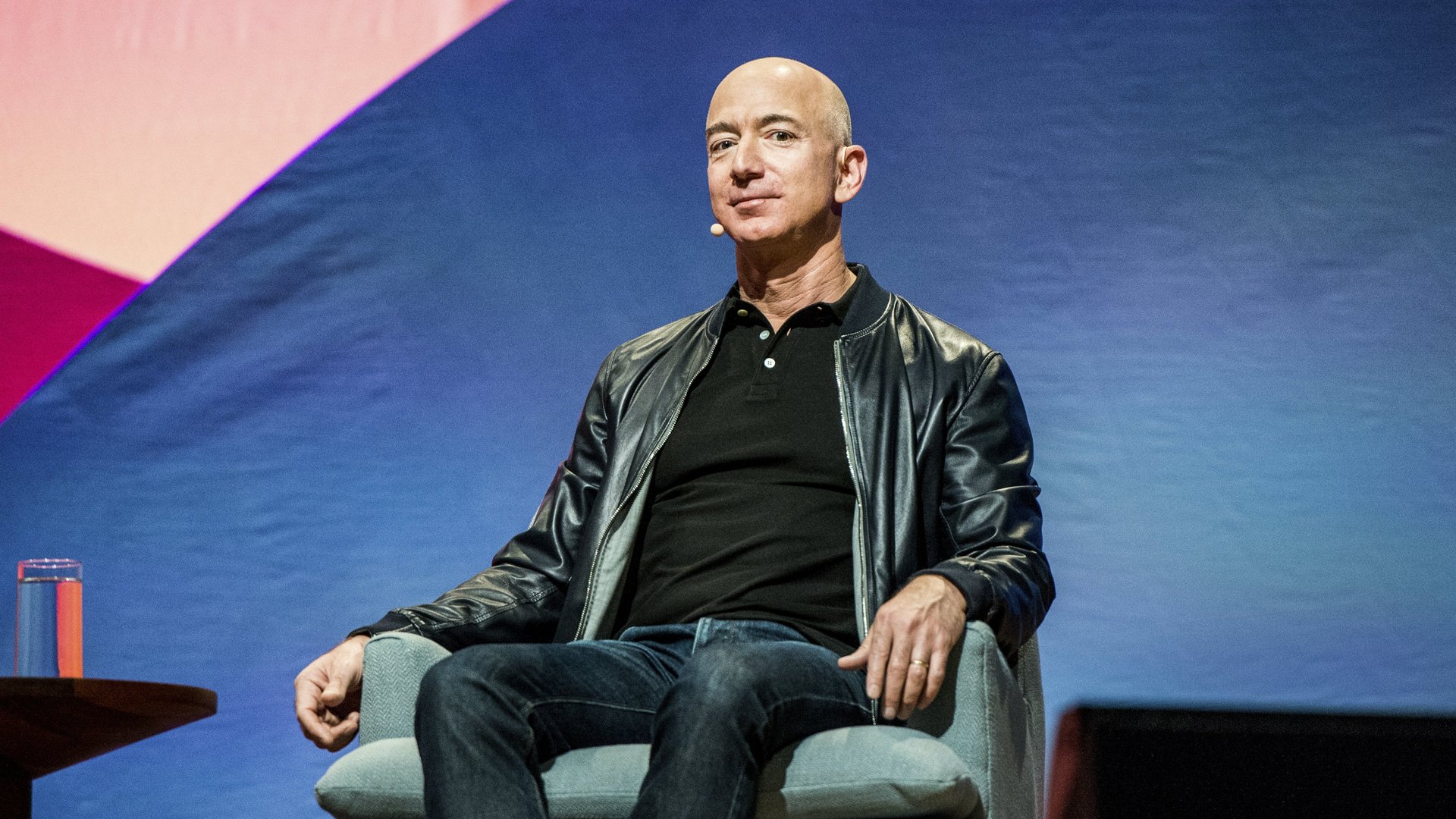Bank executives are talking about Amazon more than ever, out of admiration and fear
Bank executives are obsessed with the tech industry. Fast-growing technology firms are both a source of business and an increasingly serious threat to the financial services establishment. The preoccupation with tech can be seen by the rising number of mentions of Amazon, Apple, Google, and Facebook during bank execs’ earnings calls with analysts.


Bank executives are obsessed with the tech industry. Fast-growing technology firms are both a source of business and an increasingly serious threat to the financial services establishment. The preoccupation with tech can be seen by the rising number of mentions of Amazon, Apple, Google, and Facebook during bank execs’ earnings calls with analysts.
Wall Street veterans are less worried these days that smaller startups will steal their business, but they say they’re wary that big tech could invade their turf. Amazon was mentioned more than 160 times in the past year during financial industry conference calls, according to data compiled by Sentieo for firms listed in the US. That’s nearly triple the typical rate in 2016, on a rolling 12-month basis.
Apple, whose Apple Pay service partners with major banks, is also a regular in conference call banter. Chinese tech giant Alibaba is starting to feature more prominently, too.
Greg Braca, group head for US Retail at Canada’s TD Bank, captured the prevailing mood in a call on March 27:
If the regulatory environment continues to come down a bit, and you were to see one of these very large, very liquid entrants of the Amazons or the Facebooks or someone like that, that could be a game-changer. But I’m less worried about the fintechs in an absolute sense than maybe [if] we would have talked about it a year or two ago.
Thomas Kelleher, president of Morgan Stanley, said on March 20 that tech “holds no fear” for banks, even though it caught the industry off guard:
I often listen to bank earnings calls and you can differentiate between those who talk about technology as a cost and those who talk about technology as an opportunity. If you look at the spectrum of our business, at the retail end of the spectrum, the wealth management end, that is clearly very open to disruption, right? The largest money market fund in the world is one of Alibaba’s funds, right? I don’t think the banks saw that coming.
On Feb. 27, JPMorgan CEO Jamie Dimon said his bank has analyzed the tech threat, and is making sure it’s “thinking clearly about this really complex stuff.” Shortly after this call, reports emerged that JPMorgan and Amazon were in talks (paywall) to offer a checking account service. The bank will do whatever it takes to compete with tech firms, Dimon said at the time:
WeChat started as a chat, but they added shopping and payments … and now it’s one of the biggest payment mechanisms. Paytm was the same thing. And there’s no reason—you go on the phone, this could be the battle of all time, like who dominates all those services.
And everyone wants to be the place—the one place you go to, to do that. And whether there’s going to be one place or not, I don’t know. But we analyze all of them. And to the extent we can add services that make sense, that we make clients happy, we’re going to do that. We could build our own chat. We can build our own Facebook. We could buy Itopia. I’m really not kidding. We don’t want to. But we could build whatever we have to build to compete.
Several bank executives say that consumers expect their apps and websites to be as slick and whizzy as those made by tech firms. Here’s Ralph Hamers, CEO of Amsterdam-based ING on April 23:
Customers expect that the services of the bank is at the very least at par with this level of service that they get from Google, all these worldwide technology platforms, Amazon, WeChat, or Alibaba. So they expect a service level that is personal, instantly—instant, available, relevant and seamless. Just a click and you get what you need. That’s what customers are looking for. So that means that the banking products have become commodities that don’t stand out anymore. And those same customers expect the same level of services—Facebook. Facebook is all the same in each and every country, Uber is the same in any country. Our customers will expect identical services from ING in every country, in different languages, obviously.
Brian Moynihan, CEO of Bank of America, was asked on April 16 about the “Amazon effect” on the financial industry. The chief exec, like others, used it as an excuse to talk up his bank’s mobile banking features and Erica, its Alexa-like digital assistant:
This mobile platform just didn’t arrive in the online platform. This is $1 billion of investments across probably the last six years or something like that to get there in terms of building it out. So no matter who comes in, our job is to be more confident and more capable than anybody, whether there are competitors in the traditional industry or new competitors.
It’s also important to remember that conference calls between analysts and bank executives are fairly polite affairs. Embarrassing or uncomfortable questions don’t always get asked.
On April 26, for example, analysts didn’t ask Barclays CEO Jes Staley about a fine and stern rebuke (pdf) he received just days earlier from regulators, following his ill-advised attempt to uncover the identity of a whistleblower. The banks’ recent partnership with PayPal—something Barclays executives are keen to discuss publicly, as it suggests the 122-year-old company has a coherent plan for its digital future—was mentioned about 20 times.